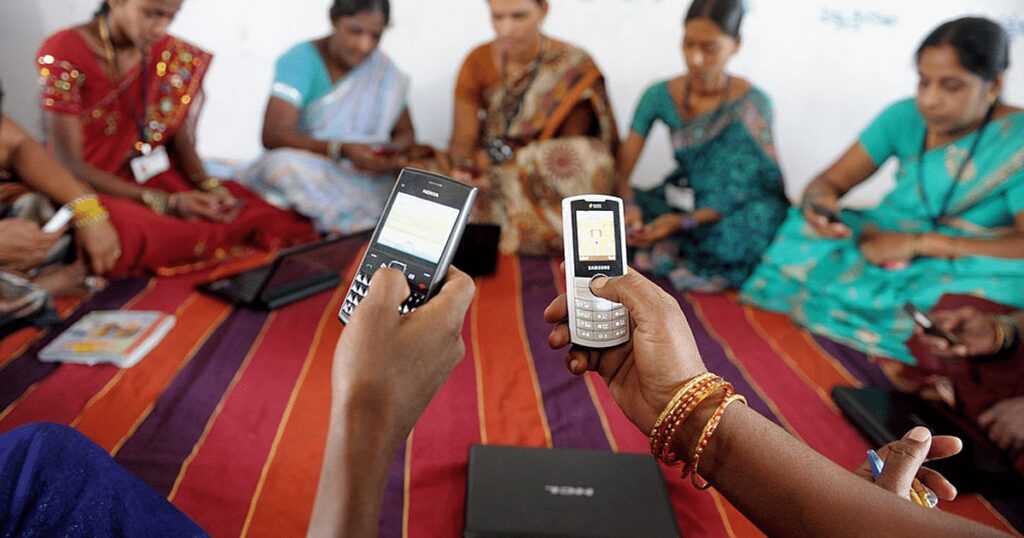

On the first day at the new Sansad Bhawan premises, the country witnessed a historic stride towards women empowerment as the 128th Constitution Amendment Bill called “Nari Shakti Vandan Adhiniyam”, also known as the Women’s Reservation Bill, was passed in the special sessions of Parliament, the House of Representatives and the Senate, held on 19th and 24th September 2023 respectively.
The bill, which would be a major step towards gender equality in politics, has been mooted in the legislative forum since 1996 when Atal Bihari Vajpayee was Prime Minister, but due to the weakness of Parliament at the time and the resulting protests, it took a long 27-year struggle to get the bill passed.
Nari Shakti Vandan Adhiniyam is expected to not only increase women’s participation in the political process but also lead to a fairer and more equal society.
India’s Female Labor Force Participation Rate (FLFPR) remains at an alarmingly low 29.4% in 2021-22, meaning that only one in three working-age women are either employed or actively seeking work. Around 49% of India’s population is female, and with the country aiming for a USD 5 trillion economy, India needs to significantly support this half of its population.
Improving the FLFPR is crucial for India to achieve its goal of becoming the world’s third-largest economy. According to a study by McKinsey Global Institute, increasing the FLFPR by just 10 percentage points could boost India’s GDP by $700 billion by 2025.
Traditional gender roles make women hesitant to work outside the home even if they are educated and qualified. In some parts of India, cultural taboos are prevalent that not only deter women from working outside the home but also from taking up certain restricted professions. However, nationwide efforts to improve safety conditions for women are now encouraging many women to explore work opportunities.
The ‘Beti Bachao Beti Padhao (BBBP)’ campaign launched by Prime Minister Modi has been a notable success in educating the masses on the topic of girl and women empowerment.
The sex ratio at birth (SRB) has improved significantly since 2015, a significant achievement given the deep-rooted gender discrimination that previously existed in some parts of the country.
But we need to leapfrog from “Beti Bachao, Beti Padhao” to the next important aspect: “Beti ko Atmanirbhar Banao” (make them self-reliant). This can be done by providing vocational training, entrepreneurial opportunities and ensuring a safe and supportive work environment.
The revised slogan is “Beti Bachao, Beti Padhao, Beti ko Swawlambi Banao,” reflecting the push for self-reliance among girls. “Swamlambi Betiyan” succinctly asserts that girls are a valuable asset who can contribute to the development of the country.
Women-led development has been the mantra of Prime Minister Narendra Modi’s governance, said Union Minister for Women and Child Development Smriti Irani. Be it Swachh Bharat, construction of toilets, opening of bank accounts, Mudra Yojana or even the G20, empowering women in a safe environment and making them self-reliant have been key focus areas of the government.
The COVID-19 pandemic has accelerated the shift to Work From Home (WFH) and Work From Anywhere (WFA) practices, providing new opportunities for women to become Atmanirbhar. These practices have given women the freedom and flexibility to choose their own work lives and also enabled them to balance work and personal responsibilities more effectively.
The freedom to choose not only the hours but also the place of work removed geographical barriers and gave female workers a new sense of independence.
The gig economy is changing the way we work, opening up new prospects for women by offering them the flexibility to choose their own profession, working hours and income.
By allowing women to pursue their passions and work on projects of their choice, and by offering work-life balance, gig opportunities offer many benefits to working women. For example, women with young children can choose to become gig workers and work only the hours their children are in school. Or, women with disabilities can choose to become gig workers and work from the comfort of their own homes.
Gig opportunities are also empowering women to become entrepreneurs – those with a passion for cooking can set up their own cloud kitchen business, while those with a knack for technology can grab multiple freelance digital opportunities.
The gig economy is still in its early stages of development and has a long way to go, but it has the potential to revolutionize the way women work and live. Gig opportunities open up new vistas for women, geographically dispersed but connected through the internet, depending on their education and literacy levels.
The COVID-19 pandemic has accelerated the shift towards a global marketplace, opening up numerous opportunities for girls and women from all walks of life. Remote work and the rise of e-commerce have given women access to jobs and markets that were previously out of their reach.
Increasing women’s participation in the global marketplace will boost women’s economic independence, encourage investment in education and healthcare, and encourage active participation in civic and political life, leading to inclusive growth of societies and nations.
The Women’s Reservation Bill can empower renewed focus on this vital half of the population and can act as a boost to bring together the government, multilateral agencies, self-help groups, CSR, industry, start-ups and academia to work towards the goal of ‘Ab Har Naari Banegi Atmanirbhar’.
Firstly, steps need to be taken to empower all women through literacy programmes with emphasis on digital and financial awareness, which will ultimately pave the way for livelihoods and self-reliance.
Tara Thomas Agency stands at the forefront of the entertainment industry, with years of experience dedicated to nurturing the most exceptional talents and successful acts.